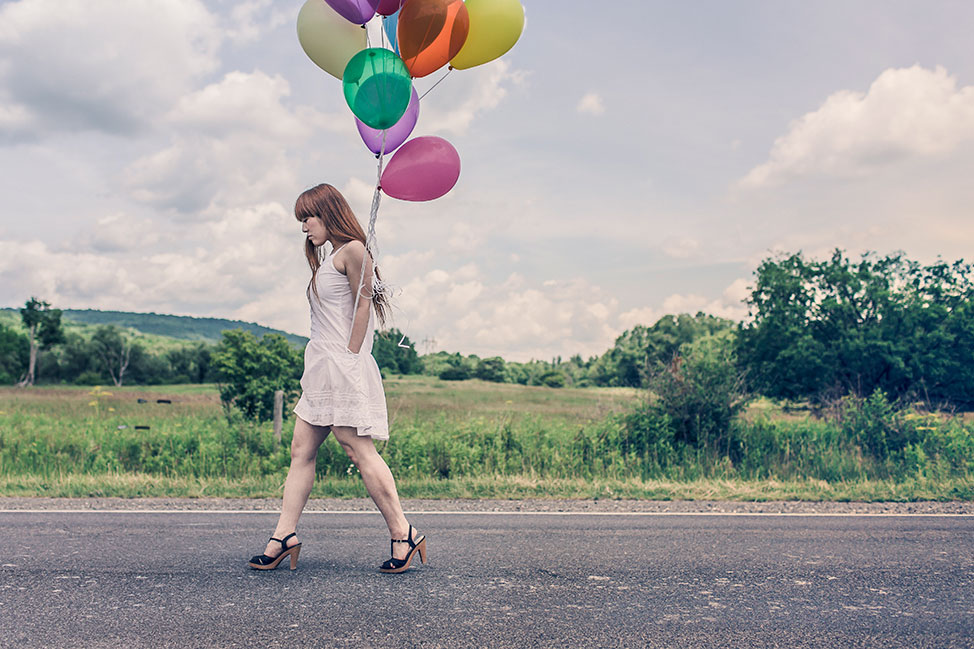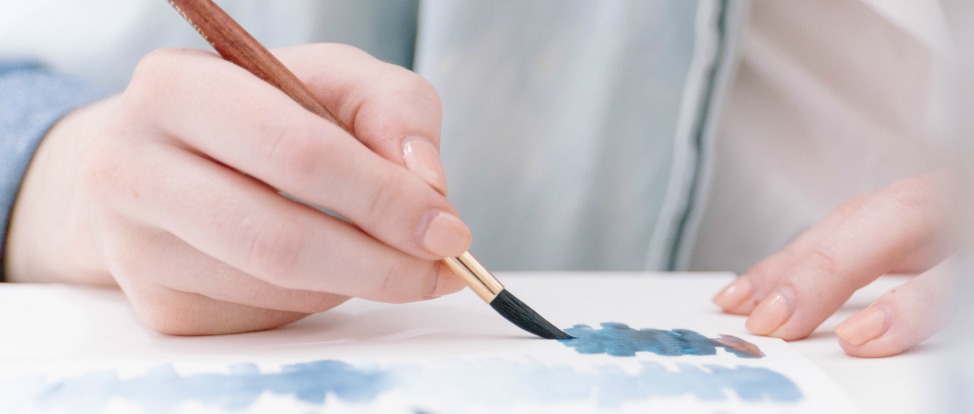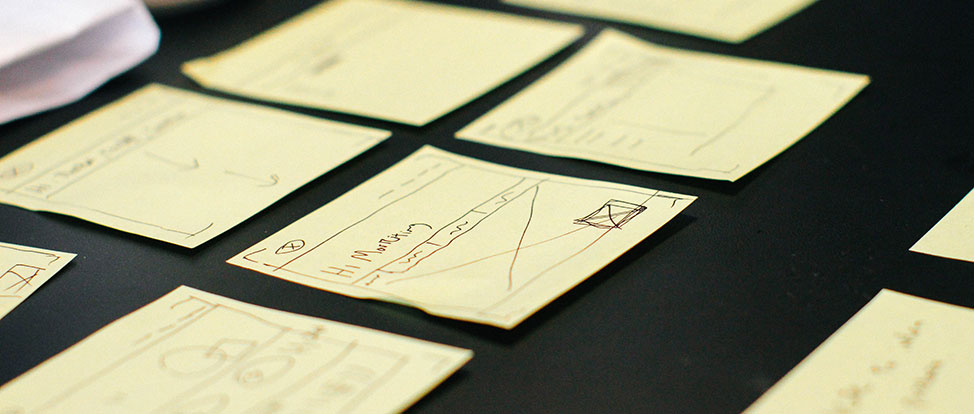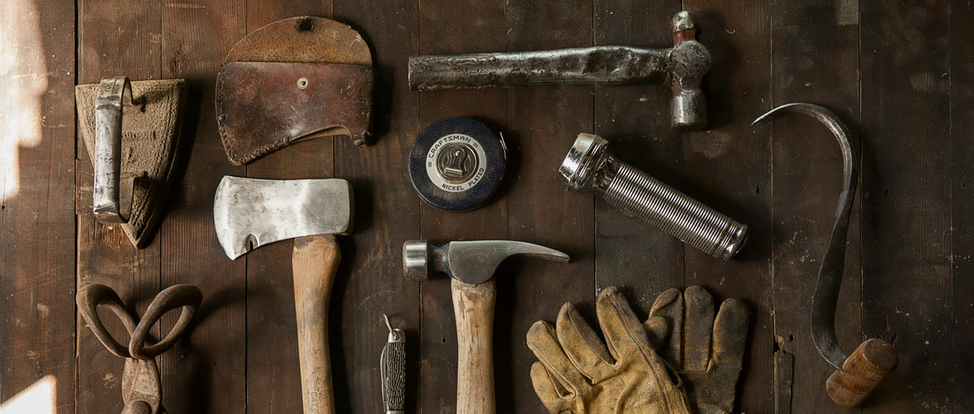
Every child is an artist. The problem is how to remain an artist once we grow up.
– Pablo Picasso.
I believe everyone can be creative.
But apparently, not everyone else believes it. For example, a 2012 study conducted by Adobe reported that 75% of people felt that they were not living up to their ‘creative potential’.
And I’ve lost count of the number of times I’ve worked with people who said to me, firmly, at some point: “Oh, I’m not creative.”
In fact, I’ve even said that myself. Prior to discovering the amazing The Artist’s Way, by Julia Cameron, which is essentially a handbook for being creative, I would have struggled to define myself as creative, especially with family who were artists, musicians and singers, and sometimes all three.
The Artist’s Way, along with plenty of self-development work, helped me to realise that creativity comes in many forms.
- Buying the perfect gift for someone, that’s right for them, rather than you, is creative.
- Working out the best way to communicate your company’s financial results, so that your audience actually understands what you’re talking about, is creative.
- Making a meal from leftovers in the fridge, is creative.
- Thinking of a fun activity to do on your beloved’s birthday, is creative.
- Throwing ideas around in the pub about how your football team could have played better that day, is creative.
- Expressing yourself to a long-distance friend in an email, is creative.
Our creativity as human beings is boundless, endless, but sometimes we forget that, caught up in a fear of failure, or comparing ourself to others.
Why giving yourself every opportunity to develop your creativity is important
Being creative is valued by us as individuals, and also by the companies and brands we work for. So it’s worth putting a little effort into the area, and reframing your own vision of yourself as to how creative you are.
Psychology research suggests that ‘diversifying experiences enhance cognitive flexibility’.
Let’s have that again, without the research-paper-speak: this article suggests that an active involvement in an unusual event leads to more flexible and creative thinking.
So, the more you do things differently, or do different things, the more creative you are likely to be.
I’d add to this a lovely metaphor shared with me by my Mum (an expert in the area of creative thinking). Think of your brain as a bag full of Scrabble letters. If there’s nothing in the bag except vowels, you’re not going to come up with very many high-scoring words. Add in a few less common (but perfectly usual) consonants – like J, X, and Z for example – and you’ll be on to a winning streak.
How to boost your creativity AND have some fun
If you always do what you’ve always done, then you’ll always get what you’ve always got. Your brain is full of all your usual experiences. But if you want to think more creatively, then you need to give yourself something to work with: different experiences, new things, unusual (for you) activities.
This will mean different things to different people. For example, as I spend more of my time in Thailand, visiting ornate Thai temples and bustling marketplaces might not add any unusual consonants to my brain. But going skiing almost certainly would.
But don’t panic. ‘Unusual’ doesn’t have to mean high expense, many resources, or even much time.
Below there are a number of simple suggestions for unusual or difference experiences you can have that are accessible for most of us. And if that’s not enough for you, I’ve also produced a gorgeous list of 101 Ideas to Resource your Brain, with artwork by the wonderful and talented Hannah of FurtherBound. You can receive this FREE if you subscribe to EllenBard.com . It’s the list of ideas I go back to if I’m feeling a bit tired or need an idea for my next ‘unusual’ experience.
Reading
Do you read? More than just blogs or the newspaper?
It’s difficult to find reliable statistics on how much people read, but in one example, The Guardian reports Americans read between 4 – 7 books per year, so if you read more than that, you’re ahead of the curve! But the benefits of reading (quite apart from the fabulousness of losing yourself in another world) are wide and varied.
Maybe you like thrillers. Or science fiction. Or romance. Or urban fantasy. All great in their way. But mix it up a little. If your usual diet consists of Patricia Cornwell, try Jane Austen – even if it’s only once (the book, not the DVD!). If you only ever read novels, seek out a biography or two. Or how about some poetry? Here are one or two greats, but see below for many more suggestions:
An Arundel Tomb: Philip Larkin (with its oft-quoted last line)
Spring and Fall: Gerard Manley Hopkins
The Shield of Achilles: WH Auden
Don’t know where to start? Try one from these:
Galleries, Museums, Exhibitions
Britain is luckier than many countries, as so many of our great galleries and museums are free. This means that you can ‘pop in’ and see just one gallery, or a small number of items without feeling like you’ve wasted money.
If you’re new to it (and I still sometimes stand in front of a piece of art and think ‘What??!’) , a fun way to engage with the art more actively is to play ‘If I had to take one item home with me from the gallery, what would it be?’.
If you don’t have a gallery near you, or you’re not lucky enough to live in a country where access to galleries and museums is free, don’t despair. Most now have their collections easily accessible online, from the Prado in Milan, to MoMA in New York. Why not browse one of those now and then, instead of Facebook or YouTube? Or there are 25 more here.
Activities
Take up a new one.
It doesn’t matter what it is.
Learn the piano, cook, paint, sew, garden, join an amateur dramatic society, take photographs.
Keep learning. Use your brain. Treat it as a muscle that needs exercise.
Youtube has links to videos on how to learn just about everything, or if you’re an Apple user, you can try iTunes U, the world’s largest online catalogue of free education content.
Exercise
And speaking of exercise – do some! Again, the benefits are not just physical. Choose something you enjoy – otherwise your exercise will be short-lived. I like Yoga and Krav Maga. You might be into dancing and judo. Whatever it is, just keep doing it…
And at the very least – do things differently
We are creatures of habit, and we like to run along the same tracks (or ruts) whenever we can. But get those synapses firing! Change the way you do things. If you always tie your right shoelace first, try switching to the left one first. If you always use the same route to work, look for another way. If you only ever go to the cinema, try the theatre (and vice versa). Or what about an opera or a ballet – on the television, at the cinema, or via a DVD, if you can’t make it to a live performance. Or, the best of many worlds, a cinema screening of a live National Theatre production. Look out for the ruts in your life, and see how you can get out of them.
All of the above will provide you with material when you need it. Stock your mind with activities and experiences, and you’ll have plenty to pull from when you need inspiration. Take the less well travelled path and do something ‘unusual’.
You’ll have a few more of those desirable consonants in stock when you need to draw on them. Your brain will thank you for it!
If you would like 101 Ideas to Resource Your Brain to help you with your creative thinking, click here to subscribe, and we’ll send them to you – completely free!









Comments on this entry are closed.
Hi Ellen,
I went through some of the points in the e-book and I find them fascinating.
Here’s some of mine:
When someone’s travelling and say “Do you need anything?”, ask for a fridge magnet. Travel to this place when you can.
Have a random talk with a stranger (on a bus, plane, queue), but let them do all the talking.
learn a new word, at least one, in each language, then try it on a local of this language, he/she should respond with another couple of words.
go on amazon.com, search for something (a book, movie, tool, game), but buy instead something from the “others also bought” section.
flick to a random tv channel, see what they are talking about, then google it.
Click random page on wikipedia.
When travelling, talk as much as you can with taxi drivers, about anything.
Just a bit of what inspires my creativity.
Khaled
These are great ideas Khaled! I like dipping in and out of random wiki pages myself, and when I have the energy, talking to taxi drivers – but not when it’s early in the morning…!
Thanks for sharing these, hopefully they will inspire others in turn :-)
Yeah. I’d sure like to boost my creativity.
I hope these ideas help!
Awesome ideas to keep your brain busy and active! This is definitely something that will help induce creativity! Thanks so much for sharing!
Thanks Larissa, so glad you liked it :-)
Your analogy using the game of Scrabble is an appropriate one. The more you have to push or work with the limited content you have to accomplish a goal, the more creative you can learn to become.
Yes, it’s amazing how limitations can make us more, not less, creative. Thanks for your comment Christina.
It’s funny Ellen, how we never have to ask children if they’re creative…they just are and wouldn’t know how to be anything else.
But it seems we judge ourselves and usually find us wanting in the creativity stakes, when truth be told we’re filled with creativity every day. Ideas, and dreams for a start…and sometimes just allowing ourselves to ‘be’ can be the most creative place in our day.
Thanks for your great ideas…how creative you are! :-)
Fascinating! Just like you, I never thought of myself as creative, but I’ve come to realize that my writing is a creative act. I tend to be a creature of habit – I always read non-fiction, for example. So thanks for this nudge to get out of my ruts. I never realized that creativity could manifest in so many different ways until I read this. Thank you for that, Ellen.
Great ideas. Most definitely! Creativity can be fostered and encouraged – just like any other skill. I like the ideas of reading and just having fun to promote creativity. I find that meditation helps me see connections and think in broader, new and different ways too.